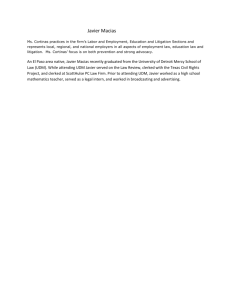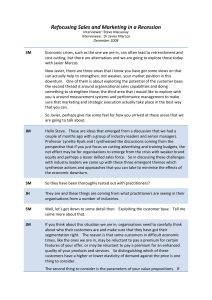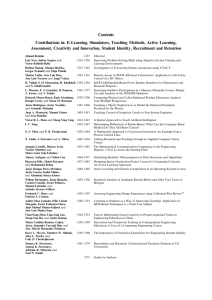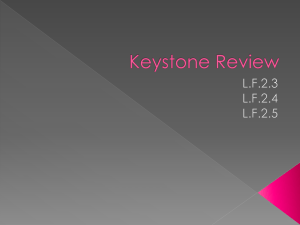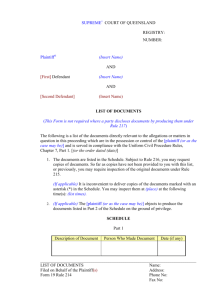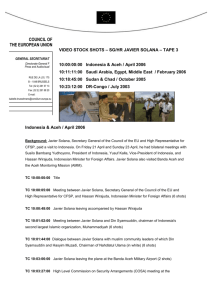BUS-311-Week-1-DQ-1-030212264
advertisement
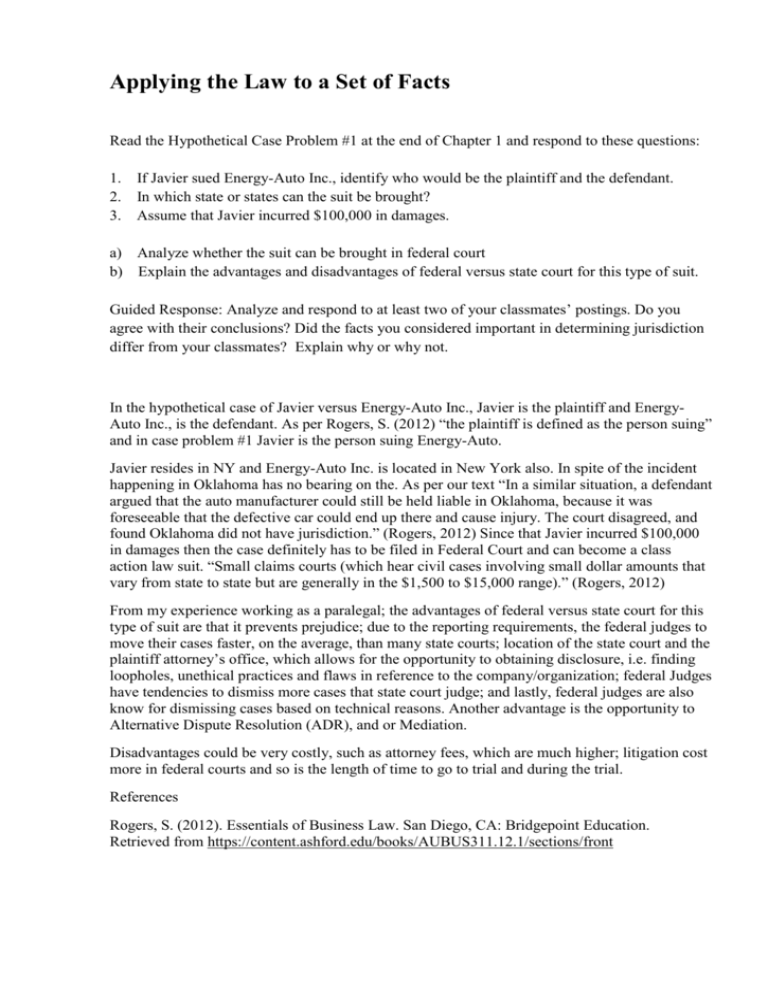
Applying the Law to a Set of Facts Read the Hypothetical Case Problem #1 at the end of Chapter 1 and respond to these questions: 1. If Javier sued Energy-Auto Inc., identify who would be the plaintiff and the defendant. 2. In which state or states can the suit be brought? 3. Assume that Javier incurred $100,000 in damages. a) Analyze whether the suit can be brought in federal court b) Explain the advantages and disadvantages of federal versus state court for this type of suit. Guided Response: Analyze and respond to at least two of your classmates’ postings. Do you agree with their conclusions? Did the facts you considered important in determining jurisdiction differ from your classmates? Explain why or why not. In the hypothetical case of Javier versus Energy-Auto Inc., Javier is the plaintiff and EnergyAuto Inc., is the defendant. As per Rogers, S. (2012) “the plaintiff is defined as the person suing” and in case problem #1 Javier is the person suing Energy-Auto. Javier resides in NY and Energy-Auto Inc. is located in New York also. In spite of the incident happening in Oklahoma has no bearing on the. As per our text “In a similar situation, a defendant argued that the auto manufacturer could still be held liable in Oklahoma, because it was foreseeable that the defective car could end up there and cause injury. The court disagreed, and found Oklahoma did not have jurisdiction.” (Rogers, 2012) Since that Javier incurred $100,000 in damages then the case definitely has to be filed in Federal Court and can become a class action law suit. “Small claims courts (which hear civil cases involving small dollar amounts that vary from state to state but are generally in the $1,500 to $15,000 range).” (Rogers, 2012) From my experience working as a paralegal; the advantages of federal versus state court for this type of suit are that it prevents prejudice; due to the reporting requirements, the federal judges to move their cases faster, on the average, than many state courts; location of the state court and the plaintiff attorney’s office, which allows for the opportunity to obtaining disclosure, i.e. finding loopholes, unethical practices and flaws in reference to the company/organization; federal Judges have tendencies to dismiss more cases that state court judge; and lastly, federal judges are also know for dismissing cases based on technical reasons. Another advantage is the opportunity to Alternative Dispute Resolution (ADR), and or Mediation. Disadvantages could be very costly, such as attorney fees, which are much higher; litigation cost more in federal courts and so is the length of time to go to trial and during the trial. References Rogers, S. (2012). Essentials of Business Law. San Diego, CA: Bridgepoint Education. Retrieved from https://content.ashford.edu/books/AUBUS311.12.1/sections/front

